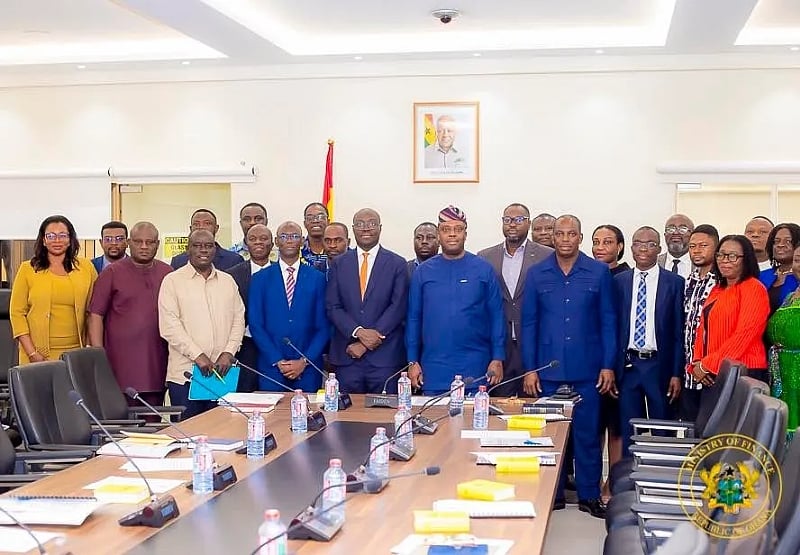Ghana’s Finance Minister, Dr. Cassiel Ato Forson, has launched a critical initiative to address the longstanding issue of mismanagement and lack of accountability plaguing the nation’s public assets. Recognizing the urgent need for reform, Dr. Forson inaugurated the National Asset Management Working Committee, a high-level body entrusted with the monumental task of creating a comprehensive State Assets Register. This register will serve as a central repository of information on all government-owned properties, including buildings, land, and equipment, aiming to curb the widespread misuse, neglect, and illegal occupation that has resulted from the current lack of accurate data. The Minister stressed the importance of this undertaking, declaring that the absence of a centralized record of state assets must be rectified immediately. He highlighted the significant financial implications of this deficiency, emphasizing that the inability to track and manage public assets effectively has led to substantial losses for the nation.
The committee, chaired by Deputy Finance Minister Hon. Thomas Ampem Nyarko, has been mandated to conduct a thorough nationwide inventory of all state-owned assets. This process will involve identifying, documenting, and verifying the ownership and status of every piece of public property. The committee’s work is expected to lay the foundation for a new era of transparency and efficiency in the management of Ghana’s public resources. Deputy Minister Nyarko has expressed his commitment to reversing the detrimental trend of acquiring new assets without proper accounting for existing ones, a practice that has contributed to the current state of disarray. Dr. Forson underscored the importance of halting the practice of acquiring new assets without a clear understanding of what the government already possesses. He emphasized that this haphazard approach to asset management has not only led to wasteful spending but has also hindered effective planning and resource allocation.
A key concern highlighted by Dr. Forson is the “wanton sale” of state lands, particularly those under the jurisdiction of the Lands Commission. He directed the committee to immediately freeze any ongoing transactions involving state lands until a thorough review can be conducted. This decisive action aims to protect public lands from further encroachment and potential misappropriation. The Minister expressed his determination to end the culture of impunity surrounding the occupation of state properties, where individuals have taken possession of public assets without proper authorization, often acting as if they were the rightful owners. He emphasized that accountability would be a central focus of the new asset management regime.
The composition of the National Asset Management Working Committee reflects the cross-sectoral nature of the task at hand. The committee comprises key officials from various ministries and state agencies, including representatives from the health, education, defence, housing, and local government sectors. This diverse representation ensures that the committee has the necessary expertise and insights to effectively address the complex challenges associated with managing public assets across different sectors. The Minister emphasized that the collaborative effort of these representatives is essential for the successful implementation of the new asset management framework.
The committee’s work is not merely about creating a register; it represents a comprehensive reform of public asset management in Ghana. It aims to establish clear procedures for acquiring, disposing of, and maintaining government properties. This will involve developing robust systems for tracking asset usage, conducting regular audits, and ensuring proper maintenance to maximize the lifespan of public assets. Furthermore, the initiative seeks to foster a culture of accountability and transparency within government institutions, ensuring that those responsible for managing public assets are held to the highest ethical standards.
Dr. Forson has called upon all Ghanaians to support the committee’s efforts, recognizing that the effective management of public assets is a collective responsibility that requires the participation of all stakeholders. The successful implementation of this initiative will not only protect and preserve Ghana’s public resources but also contribute to the nation’s overall economic development and prosperity. The Minister expressed his confidence that with the support of the public, the committee would be able to achieve its mandate and usher in a new era of responsible and transparent asset management in Ghana.


